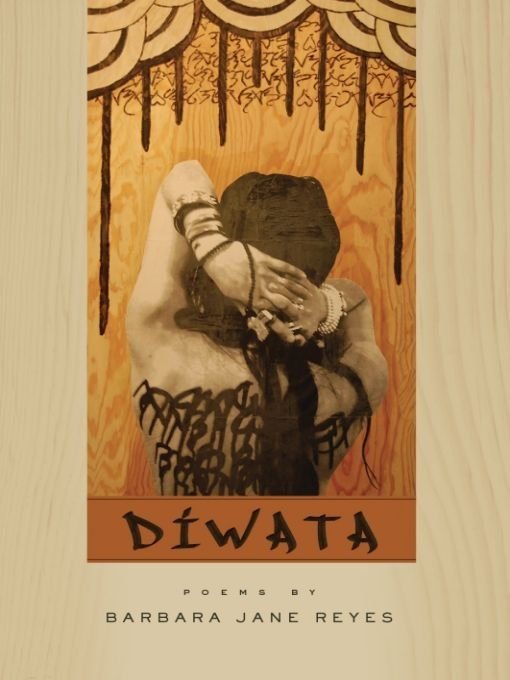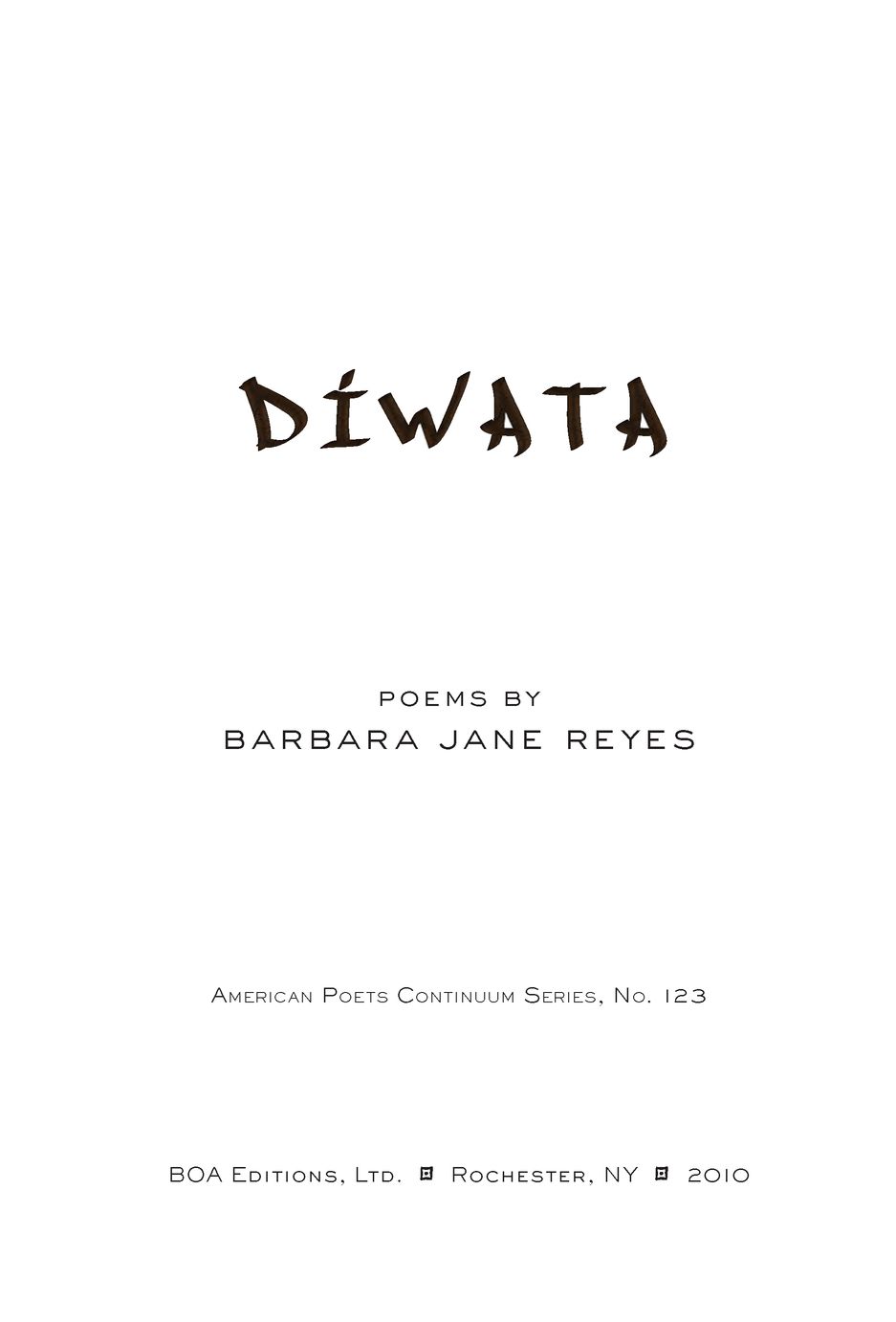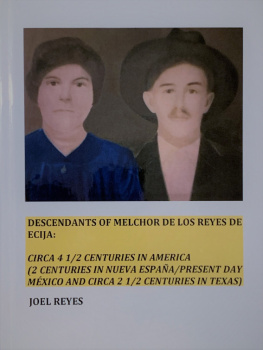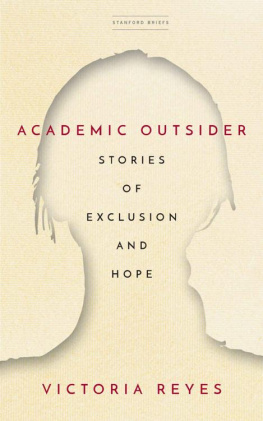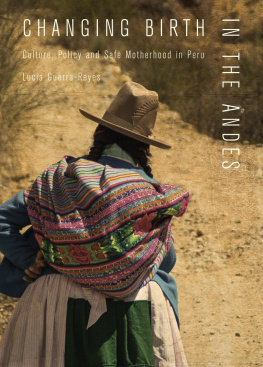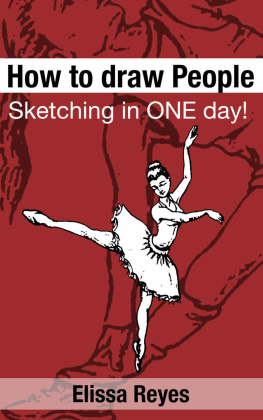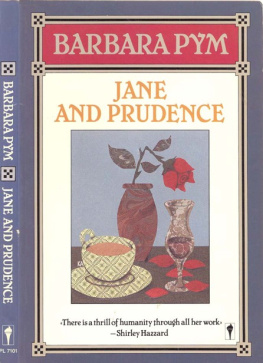Table of Contents
For Tita Alice Pulmano
19392006
Storyteller, Spirit
For Eustaquio Garcia Pulmano, MD
19122007
Monument, My Papa
Pic, pic, pic, tic, tic, tic, Look thou god of the air and lord of the birds. With only a peck of thy strong beak thou wilt give us freedom. Thou wilt be joyful at seeing us, and we shall thank thee with all our hearts.
The sound came from the bamboo reedpersuasive and distinct. Should I peck on the reed? the cautious Manaul hesitated. At that very moment, the bird thought he saw a lizard scamper up the reed. Suddenly, as a reflex action, he jumped and pecked hard.
The bamboo cracked and slowly split open. Lo and behold, the first man and the first woman sprang from inside the hollow space of the bamboo node!
Sicalc, the male, was strong and handsome and was named Malaks, meaning strong. Sicaby, the female, was beautiful and lovely and was named Magand, meaning beautiful. Since then, men were called si Lalc or lalake, and women were called si Babay or babae.
Penlope V. Flores, Malaks at Magand
And the Lord God caused a deep sleep to fall upon Adam, and he slept: and he took one of his ribs, and closed up the flesh instead thereof;
And the rib, which the Lord God had taken from man, made he a woman, and brought her unto the man.
And Adam said, this is now bone of my bones, and flesh of my flesh: she shall be called Woman, because she was taken out of Man.
Therefore shall a man leave his father and his mother, and shall cleave unto his wife: and they shall be one flesh.
Genesis 2:2124
A GENESIS OF WE, CLEAVED
In the beginning, a man of dust and fire became bone, and viscera, and flesh. The deity of the wind blessed his lips, and he came to take his first breath. Within this strange vessel, I opened my eyes, and within this, your darkness, I learned to weave song. Do you remember me fluttering inside your chest, tickled by the cool air newly filling your lungs? Do you remember exhaling song on this first day?
On the second day, the unseen hand from above cleaved you in two, exacting penance for our joy as you awakened from the deepest, most delicious dreaming. On the second day, my love, I was torn from the haven of your blood, the cradle of your flesh and tendons. A smarting wound strewn across our gardens sweet grasses, I lay raw and aching. On this second day, my hands and feet learned how relentless the cold.
On the third day, I found river, and plunged the wisp of my body into its current. As I learned to breathe without you, as I mimicked the rivers lullaby, you appeared upon its banks, your body so fissured, your eyes the ravaged jewels of an umber earth. There were no words for the sorrow bolting through me then, as I watched your hands touch the scarring place where I began. On this third day, my mirror, we learned lamentation, and shadow.
On the fourth day, I sang a dirge, the river my harmony. From afar, you watched me, as the unseen hand from above offered you reparations for your brokenness. More than anything, I thirsted to embrace you in our ocean, for its saltwater to heal us both. But my mirror, the memory of your darkness welled up inside me every time I drew near. On this fourth day, I learned to weep. On this fourth day, the scars hardened over your heart.
On the fifth day, I dreamed such fire, the birth of suns and thunder. I dreamed this garden, reduced to ash. I dreamed that from loss, we began again, a we that knew only of being whole, of sharing heart, and breath, and salt. A feast of we, luminous as the secret of fruit and seed. A we impervious to cleaving, to fracture. On this fifth day, I opened my eyes and I came to know of hope.
On the sixth day, I came to you, and told you of this dream. I touched your scars. You whispered a prayer. I gave you my secrets. You gave me your words. I asked for your breath. You gave me your seed. And as our bodies folded into each other, we dreamed the same honeyed light. Upon awakening, you named me for the morning. But on this sixth day, the unseen hand from above wrested you from me, cleaved us in two once again, and weighted the heaviest sorrow upon me. Never once did he show himself.
On the seventh day, my love, I surrendered.
THE BAMBOOS INSOMNIA
I cant sleep. There is a poet stuck between the love lines of my palms. And I would tell her to get out if I could, but there is a poet stuck inside the cradle of my bones and tendons.
DIWATA
1.
There once lived a strange deity who was only strange because few strove to know her. Brbara! Que barbaridad! taunted her eldest brother, who was lightning. Her own light was confined to a glass vial. She knew stars an ascension of pearls hung by Gigante on the highest tree boughs. When he danced, earth descended beneath his feet. There below, a vain woman, earthbound. She knew tongues of many men, those who brought boats and steel, those who brought silks and jade, those who brought the cross.
But this story lacks proper symmetry.
A womans hands make fine threads dance. With needles of carabao horn, of bamboo, she embroiders names into silkserpent ulap scale luna fire lihim gem azul eye liwanag river mariposa light talwhen she weaves these words into the fabric of sky, a charm against forgetting. With ink and thread she draws her own hands pero siempre estas manos desaparecen; she weaves enkanto contra palabras vaporosas, poemas contra vaca alma. And when her face begins to resemble the porcelain virgins face, for this firelight causes much to appear, still she sings: o diwata, your words are our breath! O diwata, our words are our offering to you!
2.
Some say thunder, child of the earth, calls to lightning, child of the sky, because they are twins, split in two by their spirit father. As the mortal woman ascended with her lover, the path through clouds to sun burned. Her flesh also burned. The child below the villagers wished to keep, so that the spirit father would always return to them.
Yes, he cleaved his son in two. And from these halves, the one skybound grew a new self just as the butiki whos lost his tail. The one below would have perished had not the spirit father descended and breathed his breath into the lifeless half body. This one, how his voice booms when his twin brother streaks across heaven.
And their sister, the strange diwata whose light remains contained. Witness she is, and weaver. If she would only speak, then she would tell youthese stories I give you, I swear they are the truth.
3.
Before this time, sky was high as a tent. Children poked clouds with bamboo sticks. Some could jump high enough to touch it with their fingertips. When headhunters danced around the bonfire, keeping vigil, their blades pierced the skins of the gods.
Yes, hija, we were headhunters once, our people
There, the battlefield between forest and rivers edge, littered with headless bodies. The heads they took to their own village for they believed the soul resided there. Beyond the distant lowlands, a deity whose winged head our god buried with the remains of the serpent who ruled the clouds. The orphan spirit, whose body our god set afire. This is how he invited his enemys soul to be his spirit guardian.

